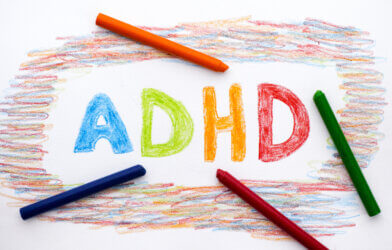We can thank Brook Shields for sharing her experience with postpartum depression, as both a speaker and author of Down Came the Rain. Her brave work has reduced social stigma and talking about the topic no longer is taboo. Discussion about prenatal mood disorders, however, is only beginning. There is an added factor in prenatal disorders which is not present in postpartum mood disorders: if medication is needed, the baby may be exposed to the drug in utero, potentially causing adverse congenital conditions. For obvious reasons, it is unethical to do double-blinded, randomized, controlled trials with drugs during pregnancy.
It is known that a woman’s elevated anxiety, depression and stress during pregnancy affects the fetal brain, altering key features. The cognitive abilities of these children, at 18 months of age, lack the degree of development expected at that age and seen in the children who did not have exposure to toxic stress prenatally.
The changes in the fetal brain exposed to toxic stress in utero also increased internalizing and dysregulation behaviors, according to a new study by Children’s National Hospital, Washington, DC. The findings also suggest that persistent psychological distress after the baby is born may influence the parent-child interaction and infant self-regulation.
While in the womb, the researchers observed changes in the brain in sulcal depth and left hippocampal volume, which could explain the neurodevelopmental issues seen after birth. Once they grow into toddlers, these children may experience social-emotional problems and have difficulty establishing positive relationships, including with their mothers.
“By identifying the pregnant women with elevated levels of psychological distress, clinicians could recognize those babies who are at risk for later neurodevelopmental impairment and might benefit from early, targeted interventions,” says Catherine Limperopoulos, Ph.D., chief and director of the Developing Brain Institute at Children’s National Hospital, in a statement.
To quantify prenatal maternal stress, anxiety and depression, the researchers used validated self-reported questionnaires. Fetal brain volumes and cortical folding were measured from MRI scans. Fetal brain creatine and choline were quantified using proton magnetic resonance spectroscopy. The 18-month child neurodevelopmental status was measured using validated scales and assessments.
Regardless of their socioeconomic status, about one of every four pregnant women suffers from stress-related symptoms. The relationship between altered fetal brain development, prenatal maternal psychological distress, and long-term neurodevelopmental outcomes is known, but the nature and origin of it remain unknown.
“What’s clear is early interventions could help moms reduce their stress, which can positively impact their symptoms and thereby their baby long after birth,” Limperopoulos concludes.
The study is published in the journal JAMA Network Open.












